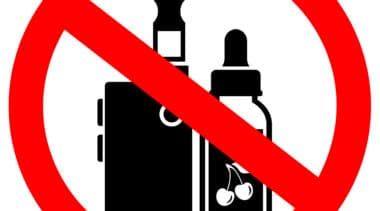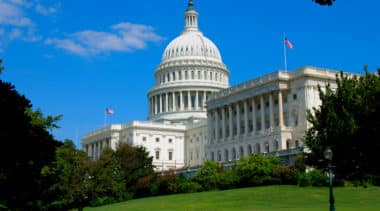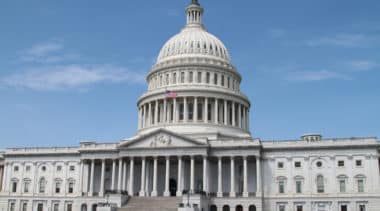Guy Bentley is the director of consumer freedom at Reason Foundation.
Bentley's research focuses on the taxation and regulation of nicotine, tobacco, alcohol, and food. Before joining Reason Foundation, Bentley served as a reporter in London and Washington D.C.
Bentley's work has been featured in The Washington Post, USA Today, Forbes, Time, Business Insider, The Daily Beast, The New York Post, and other publications in the U.S. and U.K.
Bentley graduated with a bachelor's degree in politics and international relations from the University of Nottingham and is based in Washington D.C.
-
Why States Should Scrap Their Online E-cigarette Bans During Coronavirus Pandemic
Eliminating online sales bans would help keep vape shops in business and prevent unnecessary trips outside of the home, assisting with social distancing.
-
Proposal to Ban All Tobacco Products Wouldn’t Help New York Fight Coronavirus
The scientific case for the prohibition of all tobacco products in response to the coronavirus pandemic remains weak, and for e-cigarettes it is non-existent.
-
Florida’s On the Verge of Banning E-Cigarette Flavors at the Worst Possible Time
In the midst of the COVID-19 global pandemic related to respiratory illness, banning safer alternatives to cigarettes is irresponsible and could have severely negative consequences for public health.
-
Does Vaping Increase Your Risk of Getting Coronavirus?
Some politicians claim it does but "we have zero evidence on how e-cigarette use affects coronavirus infectivity and disease progression."
-
Study Finds Menthol Ban Failed to Reduce Youth Smoking In Canada
"Survey data confirm that provincial menthol bans significantly increased non-menthol cigarette smoking among youths, resulting in no overall net change in youth smoking rates."
-
America’s Vaping Panic Is Spreading To the U.K., Experts Warn
The widespread misperception about the risks of e-cigarettes in the U.K. mirrors patterns in the U.S.
-
California Considers Statewide Ban on All Flavored Tobacco Products
State lawmakers are moving to ban the sale of all flavored tobacco products, including menthol cigarettes, smokeless tobacco, and cigars.
-
Congress’ Proposed Tobacco Ban Would Represent Most Far-Reaching Prohibition Bill Since Ban on Alcohol
Flavored e-cigarettes, menthol cigarettes, smokeless tobacco, and cigars, would all be made illegal.
-
Surgeon General’s Report: Not Enough Evidence to Support a Menthol Ban
One of the report's less-publicized conclusions is that there is not enough evidence to conclude that banning menthol cigarettes would reduce smoking.
-
The CDC Is to Blame For More Americans Than Ever Being Misinformed About Vaping and E-Cigarettes
"Restricting access and appeal among less harmful vaping products out of an abundance of caution while leaving deadly combustible products on the market does not protect public health."
-
The Nanny State Comes For Menthol Cigarettes
History shows that banning a product such as menthol cigarettes disproportionately harms racial minorities as law enforcement targets the people buying and selling them.
-
Congressional Hearing on E-Cigarettes Descends Into a Moral Panic
The hearing was littered with scientific inaccuracies and scaremongering.
-
As Congress Considers Vaping Ban, It Should Also Consider Public Health Benefits of E-Cigarettes
Hopefully, members of Congress and the industry officials will spend some time during the hearing examining the potential public health benefits e-cigarettes offer as a tool to help reduce the number of smokers in America.
-
Does Menthol Cigarette Distribution Affect Child or Adult Cigarette Use?
If the strength of the association between menthol cigarettes and increased youth initiation is as strong as tobacco control activists suggest, there should be signs of it in the national data.
-
What Would Actually Convince the Surgeon General Vaping Is Better Than Smoking?
Whenever the evidence suggests e-cigarettes may benefit public health, it is treated with extreme skepticism and never quite good enough to merit a word of recommendation from the Surgeon General.
-
Instead of Vaping Bans, States Should Incorporate E-Cigarettes Into Long-Term Public Health Strategies
Banning all e-cigarette flavors is likely to cause more harm than good to public health since it would deny adult smokers access to a safer alternative to cigarettes.
-
Michael Bloomberg’s E-Cigarette Ban Would Endanger Public Health
Presidential candidate Michael Bloomberg announced his intention to ban the sale of all flavored e-cigarettes.
-
The Trump Administration’s Ban of Flavored Vaping Cartridges Is Bad for Public Health
While Trump's policy isn't the worst possible outcome it's still a terrible blow for public health.


















